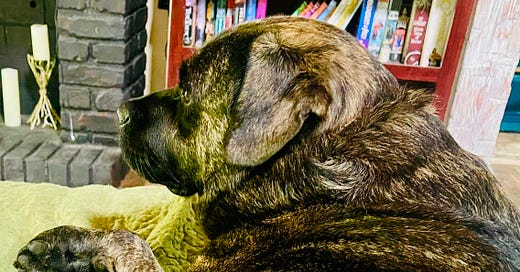“Find your voice! Use your voice! Your voice matters! The WORLD needs your voice!”
“I posted every day on Substack, and now a bajillion people love me and are buying my books!”
Maybe I’m a big Negative Nellie, but I’m exhausted seeing these kinds of posts.
“Just finding a voice” is not easy when you’ve survived any kind of trauma, let alone childhood trauma. And that’s me. The concept of “standing out” or “speaking up” meant a seemingly life-threatening situation, and now that I’m healing from some of this, it surges back up for no reason at all.
For writers and creatives, building platform is all about being vulnerable and open—but being vulnerable and open cost me quite a bit. I was open a few years ago about the abuse I went through with my family, and all it did was result in waves of cruelty (the week my mother died, I was called a cunt more than any other time in my life). I remember speaking up when I was a kid to a judge—who then raised his voice and told me children who lie are very bad children.
“Make reels and videos! Post all sorts of pictures of yourself!” Here lies another challenge. I spent a good part of my childhood hiding from cameras and pictures, as a friend of my father’s stalked my mother day and night, pointing cameras at our house constantly. To this day, I hate being in pictures or videos, and find myself nervous when presented with them.
And being in public spaces? I was kidnapped from my own school (right in the middle of a school-wide assembly) in an incident that ended with flashing red-and-blue lights and guns. Add to this growing up in a family that bullied constantly, and you, too, can have a full blown anxiety disorder.
My notion of where I am safe or under threat is not what one might call “normal.” For me, visible came to mean unsafe.
This is why I can’t get too upset with my barky brindle shadow who dedicates her entire existence to letting me know EVERYTHING that may be a threat (even if that chipmunk really wasn’t going to cause a problem). No one sneaks up on me with Nettle on the job.
But I need to face the anxiety and get out there. My novel, Whippoorwill Sing, is being released next spring from Thorncraft Publishing, and the stories I’ve placed within it are important.
Appalachian women are often muted and silenced. Muted by chores, by work, sometimes by the very families they love.
They are often family matriarchs, carrying the weight of past and present. Some are working the earth to feed their families, raising kids or grandkids that aren’t even their blood kin. Historically, many of them worked to improve their communities—and were hunted or punished relentlessly for it. Stalked, ridiculed, threatened.
In Whippoorwill, Atlas goes on a journey similar to one I began decades ago: understanding that my Appalachian heritage was more than dirt, poverty, and violence. Growing up there, all I saw was ugly—pollution, stripped land, garbage, and sickness. I didn’t see the beauty or history of the place—or especially of the women—until I was in my 20s, and it’s because it wasn’t visible. There are dangers to being visible, but there also dangers to being invisible.
So here I am, trying to speak up in a voice that will crack and shake from lack of use and probably say the wrong thing from time to time, but I’m going to try to say it anyway—in mud and ink.




